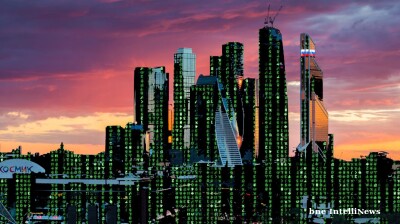Russia is working on a large-scale face-recognition scheme that could provide a useful tool for law enforcers and a large order for its tech partner, NtechLab. Meanwhile, the segment's other local companies are also working on similar solutions.
At the heart of the scheme, implemented by the interior ministry and the local company NtechLab, co-owned by state-run tech giant Rostec, are portable video recorders with a face recognition capacity.
NtechLab, one of Russia's leaders in the face recognition segment, first came to the limelight in March 2018, when an investor pool headed by Ruben Vardanyan, former owner of Troika Dialog brokerage, acquired a 25% in the company. In the same deal, Rostec's subsidiary RT Business Development bought another 12.5% in NtechLab. The remainder of the company's stock is still held by its founders and undisclosed early investors.
NTechLab has been recognized as a world leader in the face-recognition technology and won the Face Recognition Challenge Prize awarded by the US based National Institute of Standards and Technology (NIST) in 2017.
The face recognition recorders are currently in the testing phase, according to Russian business daily Vedomosti. If the testing is successful, the interior ministry will place a significant orders for this kind of devices.
NtechLab confirmed to Vedomosti that it had developed a video recorder with face recognition capacity, which it plans to manufacture under specific orders. The company wouldn't comment on a possible interior ministry deal, but said the device is suitable for law enforcers as well as for border control and ticket collection on public transport.
NtechLab's face recognition capacity is based on analysing video streams to single out people's faces and subsequently send data over the internet to a server where they will be compared against a data base of wanted offenders. In case of a match, a notification will be sent back to the device.
The device uses a camera manufactured by the Chinese company Dahua Technology, whose maximum range is between 3.5 metres and 4.5 metres, depending on lighting conditions, according to NtechLab.
Incidentally, Dahua Technology is on a list of companies whose telecom equipment will be banned in the United States as of August 2019. However, the ban is unlikely to have an impact on NtechLab as the company is currently focused on the Russian market and has no intention to introduce the solution globally.
Incidentally, another Russian company, VisionLabs, which has been operating in the face recognition segment since 2013, has a similar solution for portable devices. It has already been used in Singapore and Hong Kong. However, the device operated in a different way, sending selected shots to a smartphone with a database over Bluetooth. That approach doesn't require internet connection.
Apparently, Russian corporations have been interested in VisionLabs' solutions for a while. In July 2016, the Sistema group's venture fund bought a 25% share in the company for RUB350mn ($5.4mn). The following year, major lender Sberbank acquired another 25% stake in VisionLabs.
The Speech Technology Centre, controlled by Sberbank since April 2019, also works on some face recognition solution, but little has been revealed regarding its adoption by the corporate or public sectors.
Meanwhile, the face recognition scheme that is currently under discussion is not the first that has been floated in Russia.
Earlier this year, the Moscow government's department for information technology said it planned to introduce glasses with face recognition capacity for the city's police force. NtechLab reportedly took part in developing software for the glasses, but the current status of the programme is unclear.
Another major face recognition scheme that has been announced but is yet to take off involves the installation of 150,000 cameras with face recognition capacity at the airports and train stations and on the metro system in Moscow and St Petersburg. Incidentally, NtechLab is also reportedly involved in the project, but its timeframe is not yet known.
-
 This article is part of bne IntelliNews’s coverage of technology, blockchain, fintech, cryptocurrencies and the new economy. Sign up for the free monthly newsletter bneTech here, or read more tech stories on the website here.
This article is part of bne IntelliNews’s coverage of technology, blockchain, fintech, cryptocurrencies and the new economy. Sign up for the free monthly newsletter bneTech here, or read more tech stories on the website here.
Read the latest issue of bneTech here
http://online.flipbuilder.com/myab/milu/
Sign up for free here
https://to989.infusionsoft.com/app/form/sub-bnetech-sign-up
bne’s tech section online
Tech

Revolut receives green light from central bank to launch Hungarian branch
Revolut has grown into a significant competitor for traditional Hungarian banks, particularly in foreign exchange and money transfers.

Defence conglomerate Czechoslovak Group acquires Serbian drone tech company MUST Solutions
CSG has been on a shopping spree propelled by its boosted sales following the Russian full scale invasion of Ukraine in 2022 as well as armed conflicts in the Middle East and Africa.

Japan’s Nintendo predicts sales of 19mn Switch 2 units to March
The Switch 2 marks Nintendo’s most expensive hardware platform to date and represents the company’s principal long-term base for its extensive roster of first-party franchises.

Kyrgyzstan’s president addresses son’s involvement in creating digital bank with Binance founder ‘CZ’
Crypto kingpin Changpeng Zhao, two weeks ago pardoned by Donald Trump over money laundering, is adviser to country’s leader Japarov.




